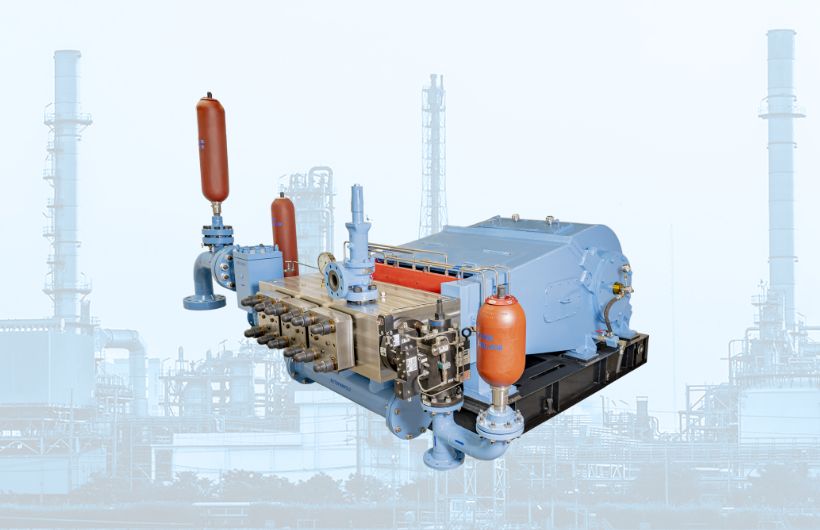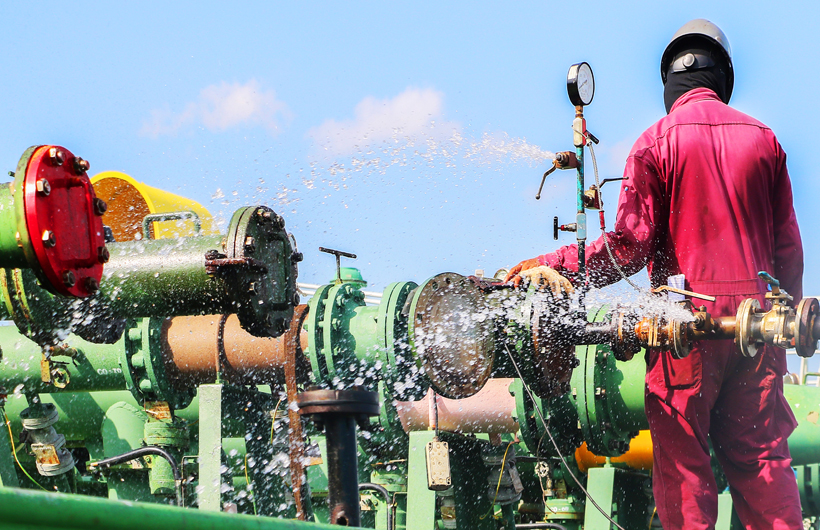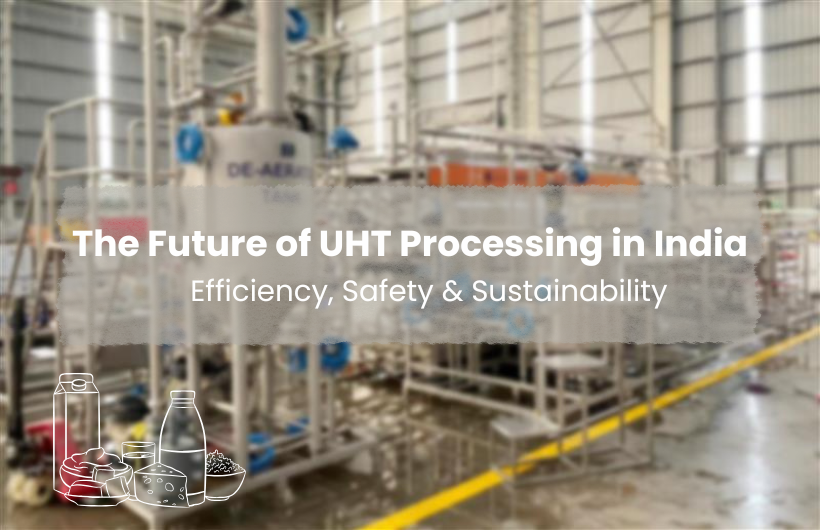18 July 2024
Powering Progress: The Role of High-Pressure Reciprocating Pumps in Modern Industries

At GOMA, we understand the critical importance of high-pressure Reciprocating pumps in powering industrial processes across various sectors. These pumps are carefully designed to withstand extreme pressures, making them indispensable in industries such as oil and gas, water treatment, chemicals, food & beverages, and manufacturing. They are engineered to efficiently move fluids under demanding conditions efficiently, ensuring smooth operations and enhanced productivity.
High-pressure Reciprocating pumps play an essential role in the oil and gas industry across three main sectors:
1. Upstream (Exploration and Production):
- Well Stimulation: High-pressure pumps are used in hydraulic fracturing to inject fluids into reservoirs, enhancing oil and gas recovery.
- Enhanced Oil Recovery (EOR): Pumps inject fluids to increase reservoir pressure and extract more hydrocarbons. This process is also known as polymer injection.
- TEG/MEG Injection: Water must be removed from natural gas before it can be further processed or sent for commercial use. Lean tri-ethylene glycol (TEG) is used to absorb natural gas water. While MEG is injected into subsea pipelines to prevent the formation of gas hydrates, which can block the flow of oil and gas. Hydrates are ice-like solids that form when water and natural gas combine under high-pressure and low-temperature conditions.
- Mud Pumping: They circulate drilling mud during drilling operations to stabilize wellbores and lift cuttings. Mud pumps regulate drilling mud properties such as viscosity, density, and chemical composition to meet operational and geological requirements.
2. Midstream (Transportation and Storage):
- Pipeline Operations: High-pressure pumps are crucial for maintaining flow rates and pressures in pipelines transporting crude oil and natural gas.
- Terminal Operations: They are used in loading and unloading operations at storage terminals for efficient product transfer.
3. Downstream (Refining and Distribution):
- Refinery Processes: They are crucial for transferring crude oil and products between refinery units and in refining processes.
- Product Distribution: High-pressure pumps support loading refined products into vehicles for distribution to end users.
Understanding the Role of High-Pressure Reciprocating Pumps
High-pressure pumps play multifaceted roles in industrial processes:
- Transporting Fluids: From raw materials to finished products, pumps ensure the seamless movement of liquids crucial for manufacturing and processing.
- Providing Pressure: Essential in maintaining operational parameters, high-pressure pumps enable precise control over pressure levels critical for various industrial applications.
- Supporting Industrial Processes: Whether it's mixing and blending fluids or controlling flow rates, pumps are integral to optimizing manufacturing and production efficiency.
- Removing Contaminants: In areas like water treatment and chemical processing, high-pressure pumps facilitate the removal of impurities and contaminants, improving product quality and safety.
High-pressure pumps are not just components but enablers of progress in modern industries. At GOMA, we recognize their pivotal role in enhancing operational capabilities and driving efficiency across diverse sectors. By continually innovating and adapting our pump technologies, we contribute to the advancement of industrial processes worldwide. Whether it's increasing productivity in manufacturing or ensuring reliable operations in oil extraction, our commitment remains steadfast in powering progress through high-performance pumping solutions.

